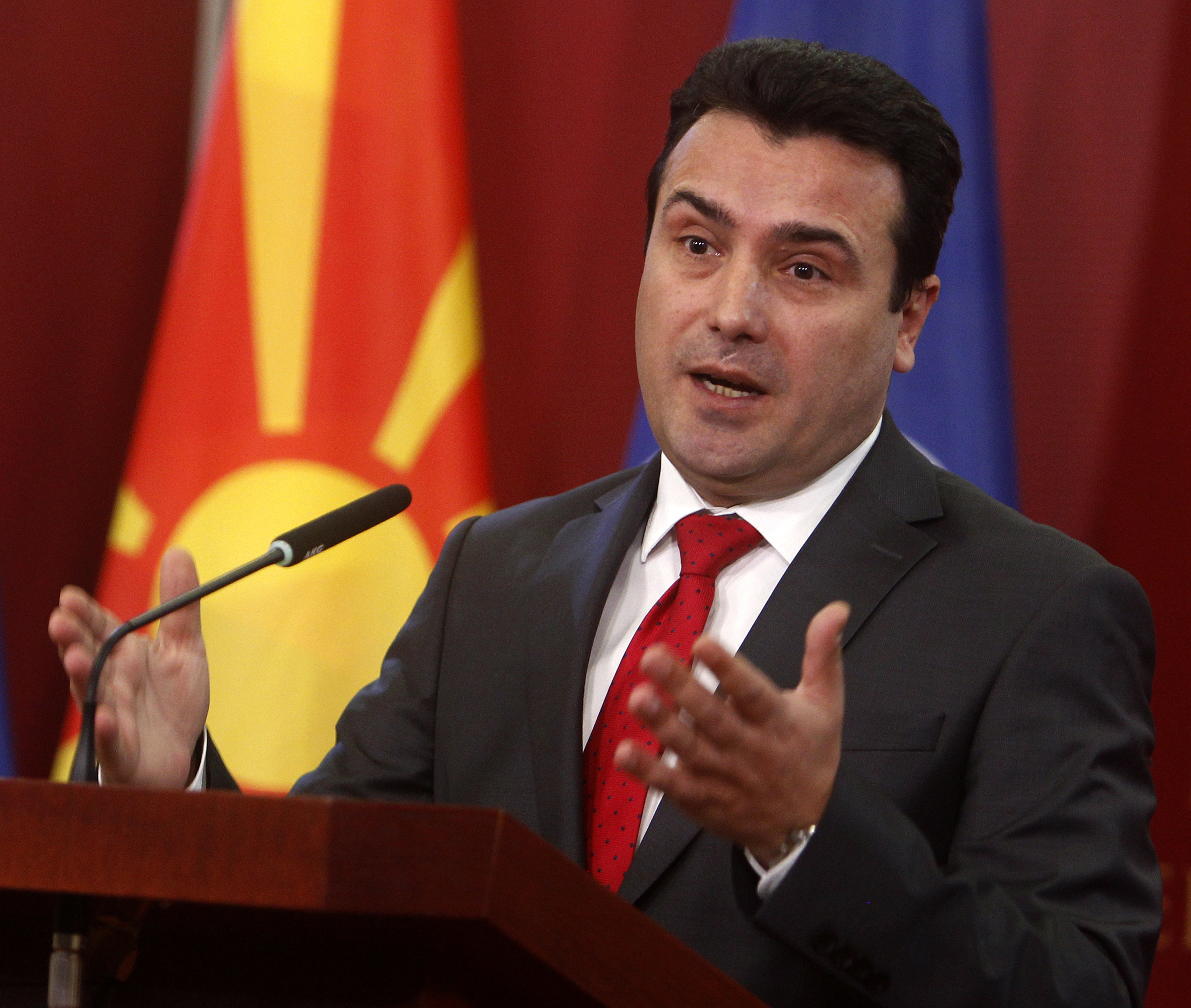
UN envoy hails Macedonia's ratification of name deal
SKOPJE, Macedonia (AP) — Macedonia’s prime minister says he expects Greece’s parliament to do its part and ratify the deal changing his country’s name to North Macedonia so it can soon join NATO.
Prime Minister Zoran Zaev told reporters in the capital of Skopje on Saturday that he expects neighboring Greece to be the first country to sign the accession protocol for Macedonia to become NATO’s 30th member.
NATO formally invited Macedonia to join the military alliance in 2008, but Greece vetoed the move, claiming that Macedonia’s name implies territorial aspirations toward Greece’s northern province with the same name as well as appropriating Greece’s historical heritage.
Zaev said that Macedonian lawmakers had “made history” Friday with their decision to back the constitutional changes associated with the name change.
“I know how difficult that was … we are putting the bitterness in the past and we are looking now proudly to the future,” Zaev said.
He said he now expects Greece’s parliament to convene and do the same, and unblock Macedonia’s NATO membership.
Zaev said that Greece has “got a new friend now North Macedonia,” adding that he hopes the two nations will build up trust and open “many new windows” for cooperation.
But in Greece, the upcoming parliamentary vote on the name change ratification has frayed relations between Greece’s coalition partners.
Greek defense Minister Panos Kammenos, leader of the right-wing populist Independent Greeks party, is vehemently opposed to the deal. He has repeatedly threatened to pull his lawmakers out of the government, although he has sent mixed signals on whether he will bring down the government in a vote of confidence.
Greek Prime Minister Alexis Tsipras and Kammenos will meet Sunday morning to discuss their differences.
A Greek government spokeswoman told The Associated Press that by Monday, or at least later in the week, the timeline for ratification will be clearer. The vote could possibly even take place this month, unless a confidence motion, invoked either by Tsipras or by the opposition New Democracy party, is discussed first.
Several lawmakers from small center-left parties, as well as at least two from Kammenos’ party, have indicated they are ready to vote for the name deal.
Tsipras, who has the unquestioned backing of the 145-strong Syriza parliamentary group, has repeatedly expressed certainty that he will find the 151 votes to ensure ratification of the name deal by a majority in the 300-member Parliament.
The Macedonian parliament’s ratification has been hailed by several foreign leaders, including NATO General-Secretary Jens Stoltenberg and EU foreign policy chief Federica Mogherini.
Adding his congratulations late Friday, was Matthew Nimetz, the U.N. Secretary-General’s personal envoy on the name dispute since 1999, saying that the agreement paves the way for “a firmer basis for peace and security in the Balkans.”
“I wish to congratulate the (Macedonian) parliament and the country’s citizens for this accomplishment and for the democratic manner in which this important process was undertaken,” he said.
___
Nellas reported from Athens, Greece.
The Western Journal has not reviewed this Associated Press story prior to publication. Therefore, it may contain editorial bias or may in some other way not meet our normal editorial standards. It is provided to our readers as a service from The Western Journal.
Truth and Accuracy
We are committed to truth and accuracy in all of our journalism. Read our editorial standards.
Advertise with The Western Journal and reach millions of highly engaged readers, while supporting our work. Advertise Today.












